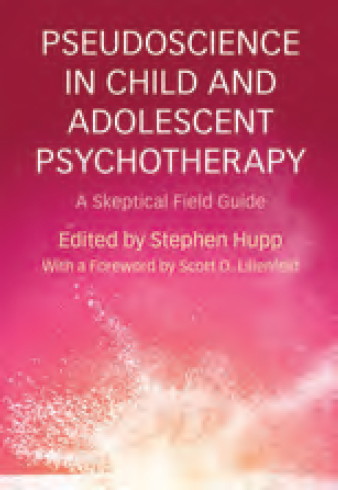Pseudoscience in Child and Adolescent Psychotherapy: A Skeptical Field Guide is a new book with multiple authors edited by Stephen Hupp. They point out that “It is difficult to prove that something works, especially in the field of psychotherapy, and particularly in attempting to help children.” There is little research on children, and research in adults may not apply to children. This very useful book addresses this neglected field. It does a wonderful job of separating psychotherapeutic treatments that have been scientifically proven to work and therapies that are based on pseudoscience.

Nineteen chapters by skeptical experts address everything from tics to toileting, from depression to anxiety, from sleep to substance abuse. The first chapter is an introduction to critical thinking about psychotherapy, covering pseudoscience and skepticism, plausibility, and good science. Each chapter covers myths, questionable ideas, and treatments that are implausible, ineffective, or harmful. Then it explains which therapies are supported by good scientific research, followed by a succinct conclusion. As a bonus, each chapter features a sidebar by a prominent interdisciplinary science communicator on peripheral subjects such as dolphin-assisted therapy, gay conversion therapy, fear of GMOs, alien abduction, and breatharians. Four of the sidebars were contributed by authors who have also written for Science-Based Medicine, and others are by skeptics who have spoken at national conferences, such as Britt Marie Hermes and Sheldon Helms.
Lisez l'article complet et bien d'autres dans ce numéro de
Skeptical Inquirer
Options d'achat ci-dessous
Si le problème vous appartient,
Connexion pour lire l'article complet maintenant.
Numéro unique numérique
Sept/october 2019
Ce numéro et d'autres anciens numéros ne sont pas inclus dans une nouvelle version de l'article
abonnement. Les abonnements comprennent le dernier numéro régulier et les nouveaux numéros publiés pendant votre abonnement. Skeptical Inquirer
Abonnement numérique annuel
€19,99
facturé annuellement